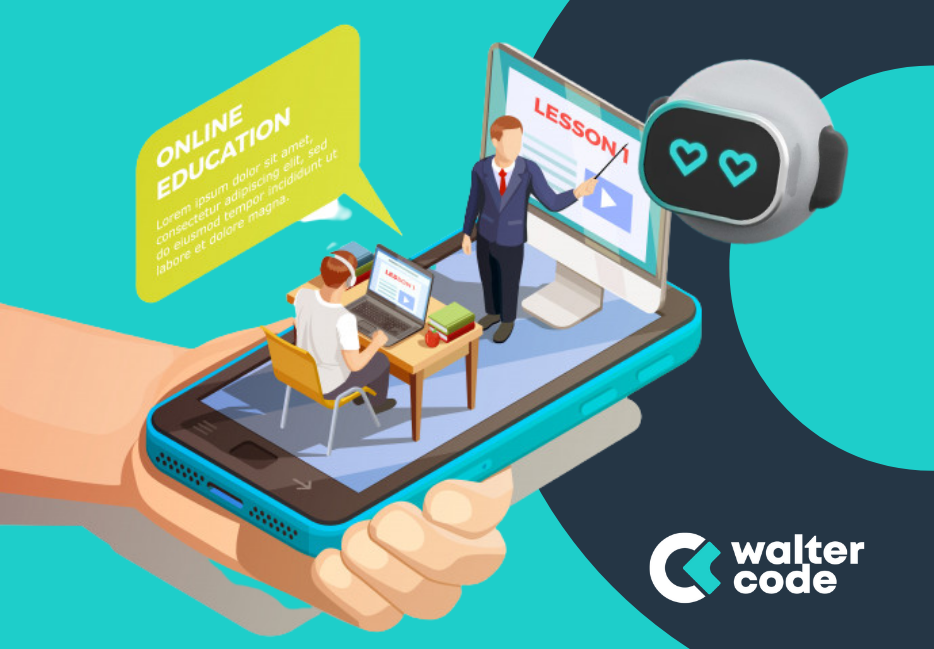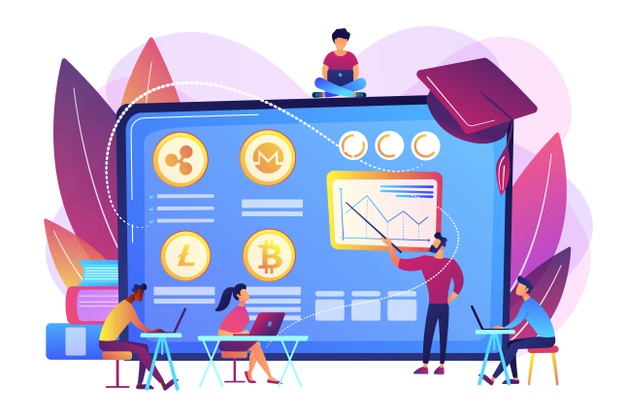
The E-learning industry is a revolutionary one. At first, the embrace of technology in educational institutions was quite the bare minimum. Nowadays, laptops, tablets, and smartphones have found their way into classrooms, mandatory business training, and have established online courses as new sources of knowledge.
The pandemic has played its role in the development of e-learning, as well.
Due to the inability to attend classroom lectures, many people have had to find alternative ways to learn, incorporating the online environment. Knowledge, nowadays, can be obtained without human teachers, wherever, whenever, and these advantages of e-learning have been taken to new heights as we’ve seen traditional educational institutions incorporate “online learning” quite heavily to replace the inability to attend “offline classes”. E-learning used to be a component of the informal education system, but the lines between the two systems are blurring, and it now serves the needs of both formal and informal education.
According to the [220+ Pages] research report, the global E-learning Market was estimated at USD 144 Billion in 2019 and is expected to reach USD 374.3 Billion by 2026. The global E-learning Market is expected to grow at a compound annual growth rate (CAGR) of 14.6% from 2019 to 2026.
https://www.fnfresearch.com/e-learning-market
The global E-learning market is powered by economic development, technological advancement, Internet penetration, continuous demand for skilling, re-skilling, and upskilling.
The rise in e-learning has been influenced by the telecommunication revolution due to the penetration of internet services, usage of images, videos, and graphics which have played an important role in increasing the engagement of pupils.
At Walter Code, we’ve had the opportunity to create Learning Management Systems that would encourage others to endeavor on the road of education.
The restrictions of traditional, brick ’n’ mortar ways of learning, like traveling to meetings to conduct training, the time and place of the lectures, access to learning materials — these are no longer in the way.
The fact that the e-learning software is updated constantly, following the latest learning contents is yet another advantage.
It is incredible to see the vast spread of skills that can be learned through e-learning platforms and the various ways technology is incorporated into these processes. Another great advantage is that the courses that are offered through LMS can be tailor-made, meaning that the knowledge you get is the knowledge you need!

Now, how exactly does Walter Code step in to support digital transformation within the E-learning Industry?
We operate in the e-learning industry and supply our customers with software that allows them to tailor-made courses on whatever subject they require. Our goal is to make sure that they don’t worry about the software side of things and focus on which exact materials and resources they want to put into the course. In other words, we create impeccable software for the needs of our clients who offer LMS.
The customization of the courses is quite convenient too! Various modules are put into place to allow different ways of interacting with these courses. For example, some would benefit from quizzes with custom options, others enjoy interactive images or even video interactions throughout the course. There’s even an option of creating unique online classrooms where the “teacher” has specific commands like checking attendance, etc. Additional customization of the courses such as allowing certification after passing a course, as well as recertification after the expiry date – all available.
Throughout these projects, the main challenge was to find the best possible way of handling the vast number of different clients and creating a module to suit all their needs. Distinct design, various types of courses, different languages… adapting it all to work properly on a large scale was the main challenge.
The solution has to work in various industries and suit the unique requirements of each client. By creating purpose-built software, Walter Code aids the students on their quest of obtaining knowledge, by making it more accessible and more immersive than ever.
And you can only imagine what the near future has in store for us, with 3D, AI, and VR joining the digital transformation of the e-learning industry!
In conclusion, E-learning, online learning, distance learning — all have several competitive blessings in a variety of areas like accessibility, flexibility, technology.
The use of online resources for learning is increasing. According to Dr. Wang Liam, “in the future, there won’t be a difference between online or face-to-face education and that they will both be interweaved together to produce the best output.”
Considering the heavily spread knowledge-sharing culture within our company, you can imagine how excited we are for the future of the e-learning industry, as we are eager to witness the innovations to develop.